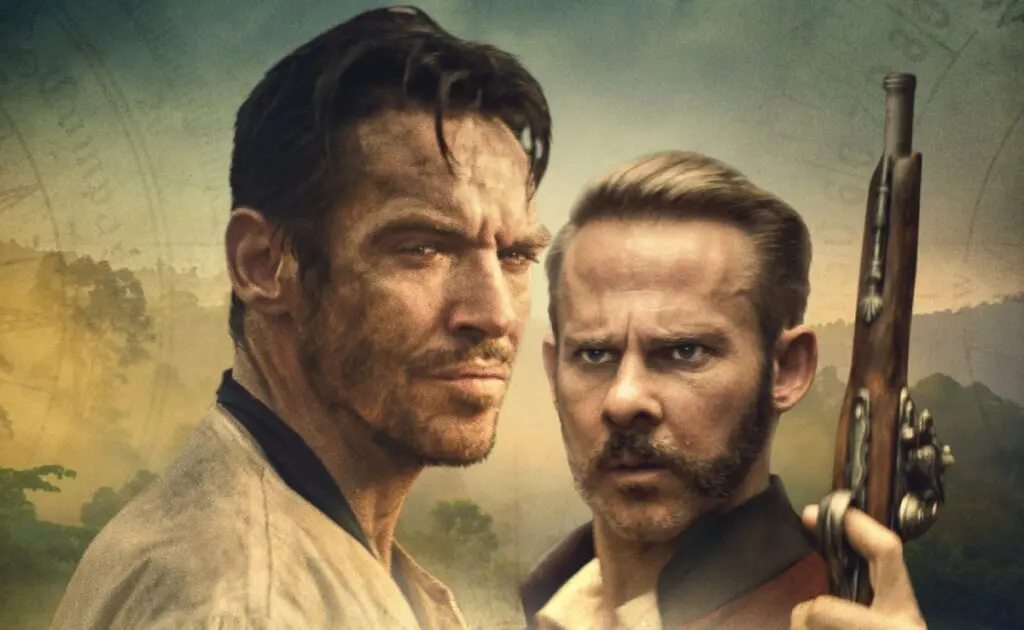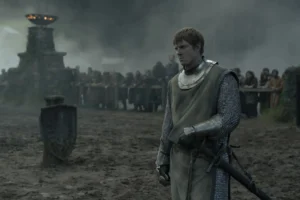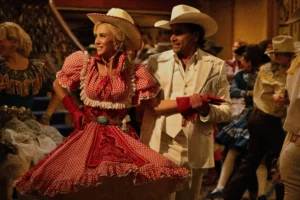Summary
Edge of the World is a familiar-feeling period drama that owes a debt to Terrence Malick, but it’s far from the worst example of such things.
This review of Edge of the World is spoiler-free.
In Michael Haussman’s Edge of the World, Jonathan Rhys Meyers plays Sir James Brooke, an English explorer with the kind of progressive mindset that you can get away with these days. He arrives in Borneo in 1839 with the intention not of conquering the place but soaking up its culture, mostly by getting involved in the local politics, and indeed the local women, though his narration does at least pay lip service to the so-called “White Man’s Burden”.
It’s hard to make this kind of movie in these days of tearing down statues of any historical figure deemed “problematic”, which, spoiler alert, is all of them. Brooke is the kind of famed adventurer who could only exist as a representative of colonialism, so you have to take even his earnest open-mindedness with a pinch of salt. He was very much an explorer in the old, idealized style, though, and Meyers captures that about him. He has the right amount of swashbuckling heroism to offset the fact that he’s visibly and audibly tired of his responsibilities at the spear tip of British colonialism. He’s weary of the barbarism he has seen all over the world, the entrenched wrong-headed attitudes of the people who’re supposedly so civilized that their civility must be imposed on others by force if necessary. For all its familiar archetypes, beats, and homages to Terrence Malick, Edge of the World at least feels sincere.
Meyers does, anyway. The script isn’t so sure. Some of the dialogue – the narration in particular – is so leaden with ridiculously overdramatized claptrap that it plays almost like a farce, despite the history speaking for itself. A straight-up depiction of that history would be impossible, obviously, both because that’s not how artistic license works and because contemporary culture won’t allow for it. Thus, Brooke’s cause is just and his attitude is the most palatable it can be to current attitudes without creeping into outright revisionism. But the film still lets him and the system he represents off a bit easy. There’s a responsibility to interrogate the underpinnings of colonialism that is lacking here, and some moral ambiguity would have done the story some good.
But whatever. As I say, you can’t do right for doing wrong these days, can you? Edge of the World has some pleasures, especially once Brooke is made king to settle a political dispute. A lot of the big drama is contained in the back half, and even though that’s where it becomes more conventional – Brooke’s interiority in his new position of power makes for the meatiest stuff – it’s also where it shows its crowd-pleasing chops. The finale isn’t memorable in where it goes, narratively, but it almost gets there visually. Cinematographer Jaime Feliu-Torres gets a lot of mileage out of the setting’s natural beauty and Haussman coaxes a strong performance out of Meyers, who keeps the whole thing anchored to a recognizable if strained humanity. You’ve seen many films like this, but I don’t imagine you’ll feel particularly slighted at having seen another.




